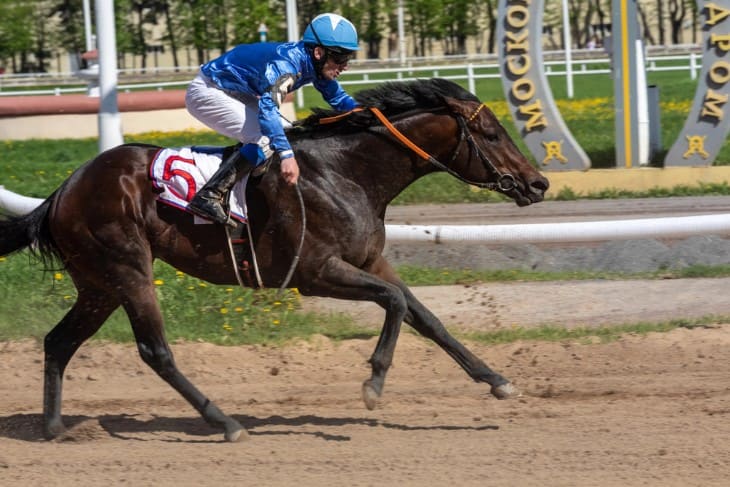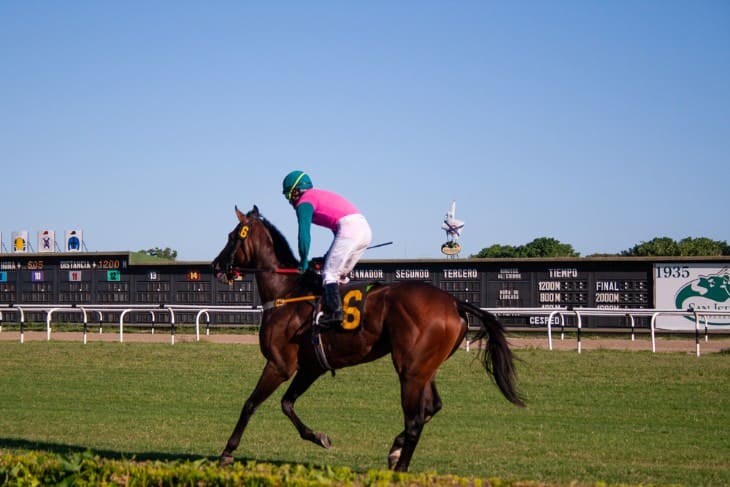Betting, with its unpredictability and potential for profit, attracts many. It encompasses sports betting, casino games, and financial speculation, all tapping into our love for excitement. Yet, our betting decisions are shaped by complex psychological factors.
Grasping these psychological elements is essential for smarter betting. This article delves into betting psychology, discussing cognitive biases and emotions influencing our bets. With this insight, you can approach betting more rationally and confidently.
The Allure of Betting: Unraveling the Psychological Fascination
Why does betting attract such a diverse audience? It's largely about the psychology of our attraction to uncertainty and risk. We naturally seek activities releasing dopamine, our brain's reward chemical. Betting offers this, making every stake an emotional journey from hope to joy or regret.
The allure of gaining significant returns with minimal effort is compelling. This 'quick win' allure, however, can skew judgment, as we may misjudge the odds.
Social interactions amplify betting's allure. Whether with friends or online communities, shared experiences heighten excitement. Such social environments can reinforce risky bets due to peer influence.
By recognising the psychological drivers of betting, we can understand our motivations and approach bets more rationally. Being mindful of the highs and lows of betting and our innate thrill-seeking can lead to more considered decisions.
The Gambler's Fallacy: Why Past Events Do Not Predict Future Outcomes
The Gambler's Fallacy is a common cognitive bias in betting. It's the mistaken belief that past results impact future outcomes. For instance, in roulette, if the ball landed on red five times consecutively, someone influenced by this fallacy might bet on black, thinking it's "due" next. But each spin is independent, and previous outcomes don't affect future ones.
Such misconceptions can lead bettors to make irrational decisions, like chasing losses or miscalculating win probabilities, often resulting in financial setbacks.
To bet rationally, it's crucial to understand and avoid the Gambler's Fallacy. Realising that past events don't dictate future results allows for objective decision-making. Betting based on thorough analysis and probability comprehension can mitigate this bias, enhancing betting success.
Anchoring Bias: The Influence of Initial Information on Betting Choices
Suppose you're reviewing odds for an upcoming football match. One bookmaker offers odds of 2.5 for Team A to win, while another offers 3.0. Which would you pick?
The anchoring bias affects our decision-making when we overly depend on the initial piece of information presented. In this scenario, the odds of 2.5 might unduly influence how we view the 3.0 odds. We often attribute undue importance to the first data point, even if subsequent information might be more relevant.
This bias can skew betting choices. By anchoring to the first odds seen, we might overlook better odds elsewhere, potentially losing out on favourable opportunities.
To combat this in betting, it's vital to survey multiple sources for odds before deciding. By remaining open to re-evaluating our first impressions and seeking further data, we can make more informed betting choices.
Overcoming Confirmation Bias: Making Objective Betting Assessments
Confirmation bias is a pervasive cognitive tendency where individuals give preference to information that aligns with their pre-existing beliefs, often neglecting or minimising contradictory evidence. This psychological inclination can have particularly adverse implications in the betting arena.
Consider a scenario where you're firmly convinced that a certain team will triumph in an upcoming match. Driven by this belief, you might gravitate towards articles, expert analyses, and statistics that back up your conviction, conveniently sidestepping or downplaying any evidence suggesting the opposite team might have the upper hand. This skewed approach can foster an inflated sense of confidence in your betting decisions, paving the way for potentially erroneous judgements.
To effectively counteract confirmation bias within the context of betting, one must actively cultivate an objective, well-rounded approach to information acquisition. Rather than honing in exclusively on data that echoes your initial perspectives, make a concerted effort to seek out and weigh up information that might challenge or contradict your initial stance. Embracing a rigorous, analytical mindset can help ensure that your betting strategies and decisions are informed by a comprehensive and balanced understanding of the available evidence.
Furthermore, maintaining a detailed, methodical record of your betting activities and their outcomes can serve as a potent tool in combating confirmation bias. This factual logbook can offer a clear, unvarnished insight into your betting habits, revealing potential patterns, tendencies, or biases in your decision-making process that might have otherwise gone unnoticed.
By consciously acknowledging the presence and potential pitfalls of confirmation bias, and actively working to mitigate its influence, we stand a better chance of making sound, well-informed betting decisions, thereby enhancing our prospects of success in the inherently unpredictable domain of betting.
The Role of Emotions in Betting: Managing Fear, Greed, and Regret
Emotions play a big role in how we bet, often clouding clear thinking. Three key feelings — fear, greed, and regret — shape our betting choices.
Fear can make us overly cautious, causing us to miss good chances. Greed can push us to take bigger risks in hopes of big wins, ignoring careful planning and smart spending. Regret can make us act quickly, trying to make up for losses.
Understanding these emotions is essential for smart betting. Successful bettors can control these feelings better than others.
One way to manage emotions is to have a clear betting plan and stick to it. This includes setting clear goals, deciding how much risk is okay, and having rules for when to place a bet. Having a plan for managing your betting funds can also help prevent rash decisions based on regret.
Being self-aware and recognising how we feel can also help us make better choices. Taking breaks, especially when emotions run high, can give us time to think clearly.
By recognising and managing our emotions in betting, we can make better decisions, improving our chances of winning.

Cognitive Dissonance and Betting Behavior: Navigating Conflicting Beliefs
Cognitive dissonance is the unease you feel when what you do doesn't align with what you believe. In the world of betting, this might surface if you see gambling as a gamble, yet continue to place bets. This contrast might lead to feelings of guilt.
To combat this, individuals might adjust their perspective on betting or even change their beliefs altogether. They might, for example, tell themselves their style of betting isn't truly risky or regard lost money as merely the cost of enjoyment.
To manage this unease, consider your motives for betting and check if they match your core values. If there's a mismatch, you might want to re-evaluate your betting habits. If you're content with your betting routine and its associated risks, then there's no worry. Otherwise, it might be wise to seek guidance or reconsider your approach to betting.
The Influence of Social Proof in Betting: How Others Affect Our Choices
As social beings, we often look to others for guidance on how to behave and make decisions. This phenomenon, known as social proof, can significantly influence our betting choices.
In the context of betting, social proof can manifest in various ways. It might be observing our friends placing bets on a particular team or witnessing a popular tipster promoting a specific outcome. When we see others expressing confidence in their betting choices, we may feel compelled to follow suit, assuming that they possess superior knowledge or insights.
While social proof can sometimes lead us to valuable information and betting opportunities, it can also be a double-edged sword. Blindly following the crowd without conducting our own research can lead to poor decisions based on the emotions and biases of others.
To harness the positive aspects of social proof while avoiding its pitfalls, it's essential to strike a balance. Stay open to the perspectives of others, but always subject the information to critical analysis. Consider the credibility and track record of those providing betting advice and never make decisions solely based on popularity or consensus.
Remember, betting is a personal activity, and what works for others may not necessarily work for you. Maintain an independent and well-informed approach to your betting strategies, using social proof as a supplementary tool rather than the sole basis for your decisions.
Loss Aversion and Risk-Taking: Balancing Caution and Opportunity in Betting
Loss aversion is a psychological bias that describes our tendency to feel the pain of losses more acutely than the pleasure of gains. In the context of betting, this can have a profound impact on our risk-taking behaviour.
The fear of losing can lead us to avoid risks altogether or take overly cautious approaches, even when the potential rewards are high. This aversion to losses can act as a barrier to seizing profitable opportunities, as we may prefer to play it safe rather than face the prospect of disappointment.
To strike a healthy balance between caution and opportunity in betting, it's crucial to understand the concept of expected value (EV). Expected value is a statistical concept that calculates the average value of a particular bet over the long term. By focusing on positive expected value bets, where the potential gains outweigh the potential losses, we can make more rational and calculated decisions.
Additionally, effective bankroll management plays a significant role in mitigating the impact of loss aversion. By setting aside a specific portion of your betting funds for riskier bets, you can take calculated risks without jeopardizing your overall bankroll.
Moreover, reframing losses as learning opportunities can help reduce the emotional impact of setbacks. Viewing losses as a natural part of the betting process and valuable lessons in refining your strategies can aid in overcoming loss aversion and foster a more resilient and disciplined approach to betting.
The Halo Effect in Betting: Recognizing and Avoiding Misleading Perceptions
The Halo Effect is a well-documented cognitive bias wherein an overall impression of an individual, brand, or entity unduly influences our judgment of their specific characteristics. Within the sphere of betting, this can manifest as an unjustified favouring of teams, players, or betting methodologies based on their past accolades or established reputation.
Consider the case of a football team that has a storied history of victories or a renowned tipster with a string of past correct forecasts. There's a tendency to assume success for such entities, despite any present challenges, variables, or uncertainties they might face.
It is imperative, especially in the unpredictable realm of betting, to be consistently alert to the pitfalls of the Halo Effect. Simply put, it's unwise and financially perilous to place undue weight on a bet or strategy just because of the previous successes or the reputation of the entities in question.
To robustly counter this bias, one must adopt a rigorous approach to research and analysis for each individual bet. This means delving into the nitty-gritty: evaluating current team form, understanding team dynamics, taking into account injuries, and considering any other critical factors that might play a role in the outcome of an event. Decision-making should be rooted in current, tangible evidence, rather than being swayed by historical performance or reputation alone.
Further, a strategic way to diminish the undue sway of the Halo Effect is to diversify one's betting portfolio. By spreading one's focus across multiple sports and betting markets, there's an opportunity to garner a more comprehensive perspective, allowing for more informed and rounded decision-making.

Making Informed Betting Decisions: Strategies to Leverage Psychological Insights
After exploring the various psychological aspects of betting, it's time to put the insights into action and make more informed betting decisions. Here are some strategies to help you leverage your newfound knowledge:
Self-Awareness
Recognize your own emotional triggers and cognitive biases. Practice self-awareness and be mindful of how these factors can influence your betting choices.
Research and Analysis
Invest time in gathering and analyzing relevant data for each bet. Avoid relying solely on gut feelings or social proof when making decisions.
Bankroll Management
Establish a clear and disciplined bankroll management strategy. Set aside a portion of your funds for riskier bets, and avoid placing bets that could jeopardize your overall bankroll.
Expectation of Losses
Understand that losses are a natural part of betting. View them as opportunities for learning and improving your strategies.
Objectivity
Strive for objectivity in your betting decisions. Be open to different viewpoints and consider a variety of sources before making choices.
Diversification
Explore different betting markets and sports to diversify your betting activities. Avoid over-relying on specific teams or individuals due to the Halo Effect.
Long-Term Mindset
Approach betting with a long-term perspective. Focus on positive expected value bets and avoid being swayed by short-term fluctuations or emotions.
Remember that success in betting is not solely determined by luck, but also by knowledge and discipline. By understanding the psychology of betting and employing these strategies, you can elevate your betting game and increase your chances of making profitable and well-informed decisions. Happy betting!








